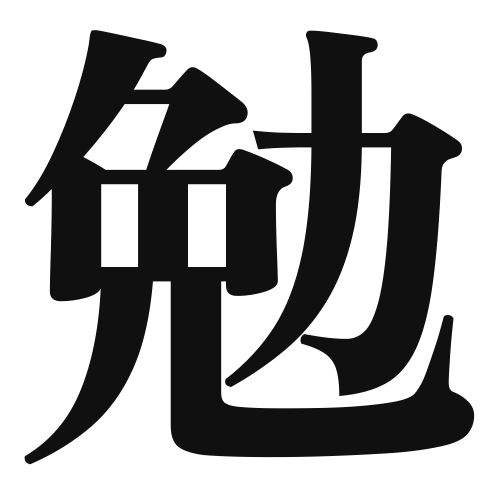1. Overview of Meaning
The kanji “勉” (ben) means “to exert effort” or “to strive.” It is often associated with hard work, diligence, and the act of studying or learning.
2. Formation and Radical
Formation of the Kanji: The kanji “勉” is a phonetic-ideographic character (形声文字). It combines the radical for “strength” (力) with a phonetic component that suggests its pronunciation.
Radical: The radical of “勉” is 力 (chikara), which means “power” or “strength.” This reflects the effort and energy required to achieve something.
3. Examples of Usage
Common Words and Phrases:
- 勉強 (benkyou) – study
- 勉強する (benkyou suru) – to study
Example Sentences in Daily Conversation:
- 毎日、勉強することが大切です。 (Mainichi, benkyou suru koto ga taisetsu desu.) – It is important to study every day.
- 彼は勉強にとても努力しています。 (Kare wa benkyou ni totemo doryoku shiteimasu.) – He is putting a lot of effort into his studies.
4. Synonyms and Antonyms
Similar Kanji:
- 努力 (doryoku) – effort; this emphasizes the act of trying hard.
- 勤勉 (kinben) – diligence; this focuses on being hardworking and industrious.
Antonyms:
- 怠惰 (taida) – laziness; this represents the opposite of effort and diligence.
5. Cultural and Historical Background
Relation to Japanese Culture: The concept of “勉” is deeply rooted in Japanese culture, where hard work and perseverance are highly valued traits. This is reflected in the education system and work ethic.
Proverbs and Idioms:
- 努力は必ず報われる (Doryoku wa kanarazu mukuwareru) – Effort will surely be rewarded.
- 勉強は未来を作る (Benkyou wa mirai o tsukuru) – Study creates the future.
